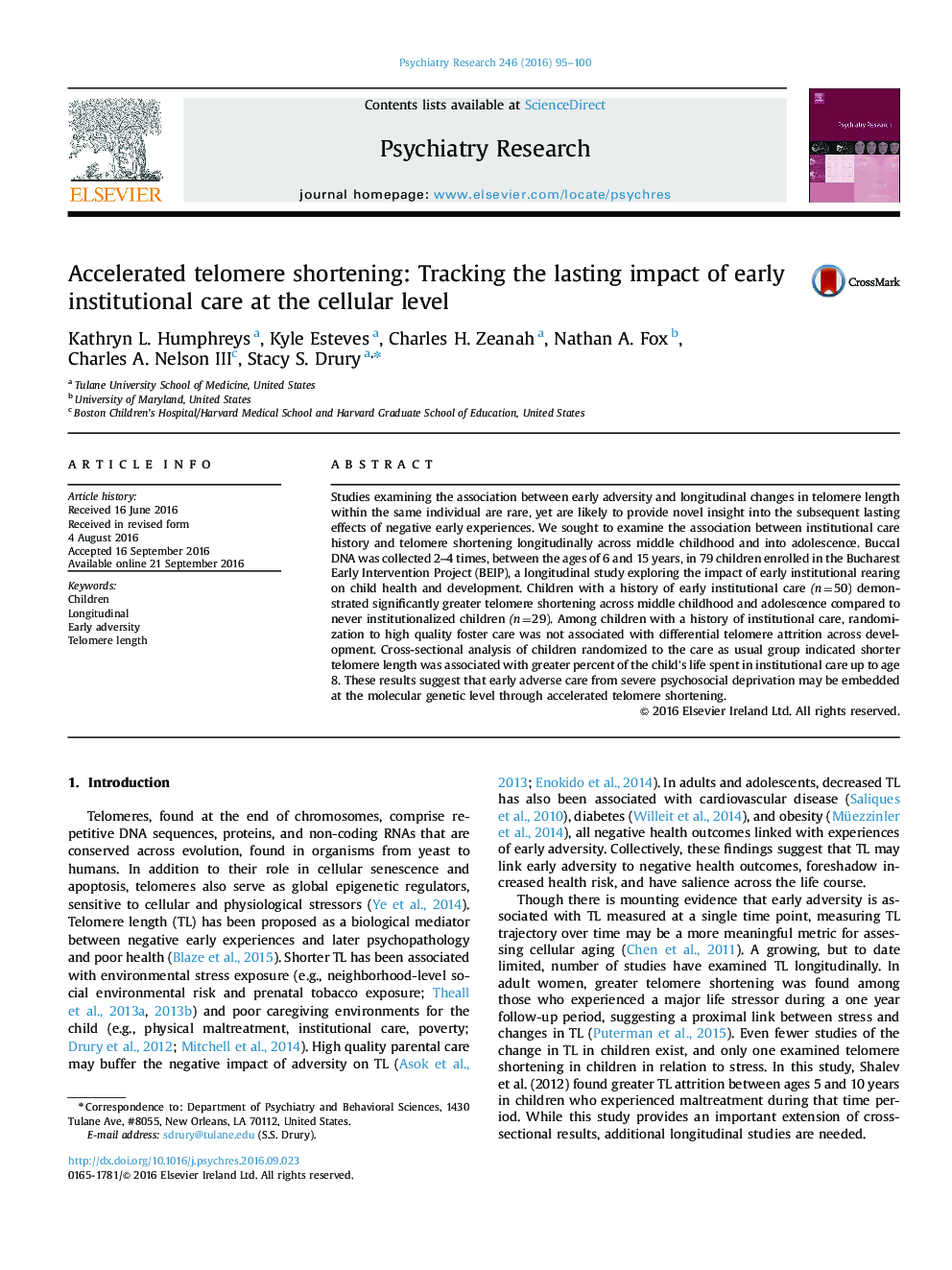| Article ID | Journal | Published Year | Pages | File Type |
|---|---|---|---|---|
| 4933769 | Psychiatry Research | 2016 | 6 Pages |
Abstract
Studies examining the association between early adversity and longitudinal changes in telomere length within the same individual are rare, yet are likely to provide novel insight into the subsequent lasting effects of negative early experiences. We sought to examine the association between institutional care history and telomere shortening longitudinally across middle childhood and into adolescence. Buccal DNA was collected 2-4 times, between the ages of 6 and 15 years, in 79 children enrolled in the Bucharest Early Intervention Project (BEIP), a longitudinal study exploring the impact of early institutional rearing on child health and development. Children with a history of early institutional care (n=50) demonstrated significantly greater telomere shortening across middle childhood and adolescence compared to never institutionalized children (n=29). Among children with a history of institutional care, randomization to high quality foster care was not associated with differential telomere attrition across development. Cross-sectional analysis of children randomized to the care as usual group indicated shorter telomere length was associated with greater percent of the child's life spent in institutional care up to age 8. These results suggest that early adverse care from severe psychosocial deprivation may be embedded at the molecular genetic level through accelerated telomere shortening.
Related Topics
Life Sciences
Neuroscience
Biological Psychiatry
Authors
Kathryn L. Humphreys, Kyle Esteves, Charles H. Zeanah, Nathan A. Fox, Charles A. III, Stacy S. Drury,
